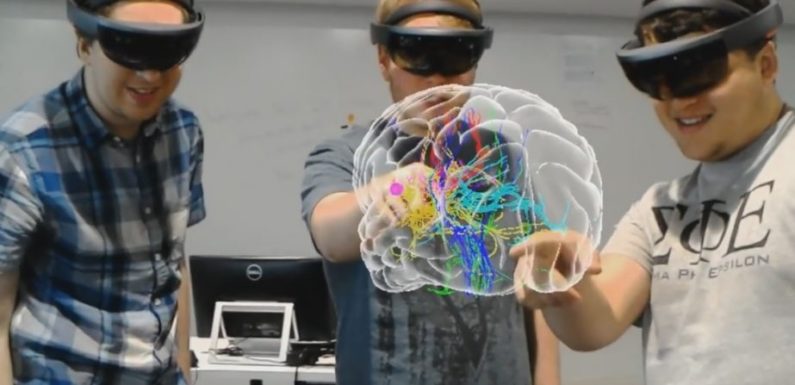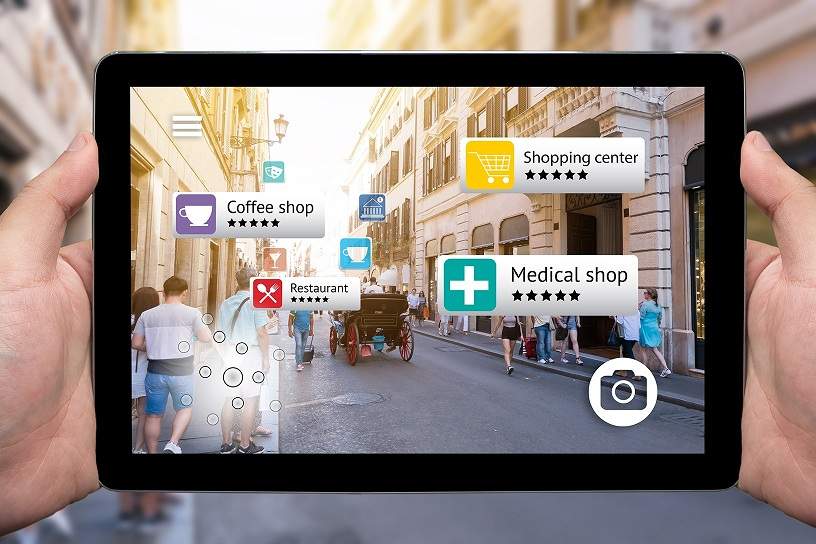
Today, a lot of technologies have hit the market and have taken a significant place in the tech world. The business landscape is rapidly shifting, and consumer preferences are evolving faster. Therefore, companies can no longer afford to wait and watch their competitors innovate and expertise the latest tools.
One of these most talked latest technologies is Augmented Reality. When it comes to AR, the first thing that comes to our minds is Pokemon Go and such other games.
However, Augmented Reality has grown beyond the gaming and entertainment sector. Today, it has become one of the major tools for entrepreneurs to attract and engage their target audience. Moreover, they also enjoy a plethora of benefits that help their brand remain in the limelight of the market.
What is Augmented Reality?
It allows creating a unified and enhanced view of the world by superimposing the computer-generated information on real-world environments to deliver the engaging user experience. AR brings out the ability to insert and overlay the digital and virtual information on the real world.
According to Inc, it is forecasted that the AR market is expected to reach $100 billion by 2020. The AR apps promise to add value to every industry, from retail to industrial manufacturing. The technology has shown the potential to solve some of the significant issues and pain points. We won’t have to wait too long for AR to make a big impact across the board.

Top 10 Industries using Augmented Reality
Manufacturing
In the manufacturing business, it is not feasible nor affordable to make a single mistake in the development process. A minor error can lead to re-building or improving an existing product, which can be both costly and time-consuming.
Augmented Reality has the potential to digitize the product prototyping in 3D, which makes it easier for them to access and understand the prototype. As a result, business leaders can easily take the right decision, and their team can act effectively. It increases the speed of the process, along with the efficiency rate, which, in turn, enhances the overall experience.
Healthcare
AR technology has been showing some significant development in the healthcare world, similar to AI, Machine learning, and Wearable. It breaks down the complex medical concepts into interactive 3D forms. As a result, it empowers the medical experts to describe everything easily to their patients and trainees.
Moreover, it also offers 3D visualizations of the organs from different angles, which helps the surgeons make precise stitches and increase the success ratio.
Retail
AR technology has evolved beyond the Snapchat’s virtual face filters. Eyewear and the cosmetic industry have widely adopted this technology to help customers understand what they want and try everything before buying.
Earlier, it was quite challenging to deliver flawless customer experience, as every face and skin are different. However, with the advent of Augmented Reality, the end users can effortlessly find out what suits them and make the purchase.
Sephora’s AR app is one of the successful examples in this relevance. The mobile app consists of a ‘virtual try-on’ feature that enables customers to try make-up virtually and find what goes with your complexion.
Similarly, the Eyewear firm Glasses.com has incorporated the technology into their processing to help end users to try a different style of glasses and choose the one they find excellent.
Education
The education sector has experienced a noticeable development with the adoption of AR technology. Moreover, it has made learning more fun by engaging users with interactive concepts.
AR incorporates gaming elements into the classroom to offer an exceptional experience for both teachers and students. As a result, it turns a boring class into a jaw-dropping experience and enables students to learn complicated concepts easily via 3D AR modeling. It empowers them to study beyond textbooks and satisfy their curiosity.
Moreover, teachers are able to provide the right environment for students to help them give their best output. For example, by converting a classroom into an AR playground or a high-definition gym, a physical trainer can quickly prompt students to practice actively.
Marketing
Similar to other sectors, marketing is also on the path of adopting AR technology. It enables marketers to incorporate 3D animations, video and target-based additional information into their AR-based storefronts, brochures, posters, t-shirts, flyers, and billboards. As a result, they are able to provide a lucrative and seamless experience to their targeted audience.
Maintenance
AR technology has shown remarkable results in the maintenance sector. Businessmen can replace manuals with visualized & real-time instruction through an AR app. As a result, it has become simpler to maintain machines or equipment. The AR app shows how to remove the part and repair it, which makes it easier for a maintenance engineer to repair the machine.
Once the issue has been identified, the technician with the help of AR can follow simple visual instructions to bring the solution.
Travel
Like other industries, the travel industry has also started to leverage Augmented Reality to enhance users’ experience. It helps in hotel room booking, transportation, planning events & outings, and booking a table at a restaurant. All these tasks have become more convenient due to the AR technology.
Moreover, it helps travelers access the information written in pamphlets and other sources easily by converting it into useful, spoken conversation. Also, it offers 360-degree tours to the guest rooms, restaurants, meeting facilities, and other places to the customers. Additionally, it enables travelers to visit nearby events and outing places, even without leaving the comfort of their rooms.
Food And Beverage Industry
The AR technology has been successful in bridging the gap between the consumer, product, and product content. It helps end users to get detailed information about the ingredients and nutritional value of every food item they have ordered.
Pharmaceuticals
The pharmaceutical industry has also joined industries on the path of leveraging Augmented Reality. The relevant AR mobile app offers a new perspective to customers in the form of a 3D demonstration of products during sales meetings.
The purpose of coming up with such a mobile app is to deliver AR experience to the viewers. It helps in creating animation for the augmented image to display how the product precisely works.
Industrial Robot Manufacturers
Companies manufacturing industrial robots have taken immense benefits of Augmented Reality by developing relevant AR mobile apps. AR helps the sales & marketing team to offer a 3D demo of their industrial robots while interacting with the client.
The app scans the image of the industrial robot and starts to display the augmented 3D model of the robot. Moreover, users can interact with the app in real-time by adding values for the angles of the robotic joints.
Last Words
Augmented Reality has rapidly taken a significant place in the business world and greatly contributes to the overall growth and development of various industries.
With the increasing use of mobile applications, Android and iPhone app development have taken rise in several enterprises. Consult an Android app and iPhone app development company for your next robust AR mobile app.

